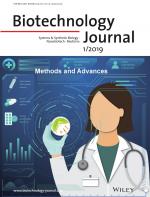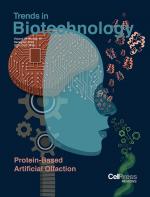Affitins for protein purification by affinity magnetic fishing
- Citation:
- Fernandes, CSM, dos Santos R, Ottengy S, Viecinski AC, Béhar G, Mouratou B, Pecorari F, Roque ACA. 2016. Affitins for protein purification by affinity magnetic fishing. Journal of Chromatography A. 1457:50–58.: Elsevier B.V.
Abstract:
Currently most economical and technological bottlenecks in protein production are placed in the down-stream processes. With the aim of increasing the efficiency and reducing the associated costs, variousaffinity ligands have been developed. Affitins are small, yet robust and easy to produce, proteins derivedfrom the archaeal extremophilic “7 kDa DNA-binding” protein family. By means of combinatorial pro-tein engineering and ribosome display selection techniques, Affitins have shown to bind a diversity oftargets. In this work, two previously developed Affitins (anti-lysozyme and anti-IgG) were immobilizedonto magnetic particles to assess their potential for protein purification by magnetic fishing. The opti-mal lysozyme and human IgG binding conditions yielded 58 mg lysozyme/g support and 165 mg IgG/gsupport, respectively. The recovery of proteins was possible in high yield (≥95{%}) and with high purity,namely ≥95{%} and 81{%}, when recovering lysozyme from Escherichia coli supernatant and IgG from humanplasma, respectively. Static binding studies indicated affinity constants of 5.0 × 104M−1and 9.3 × 105M−1for the anti-lysozyme and anti-IgG magnetic supports. This work demonstrated that Affitins, which canbe virtually evolved for any protein of interest, can be coupled onto magnetic particles creating novelaffinity adsorbents for purification by magnetic fishing.
Notes:
n/a







